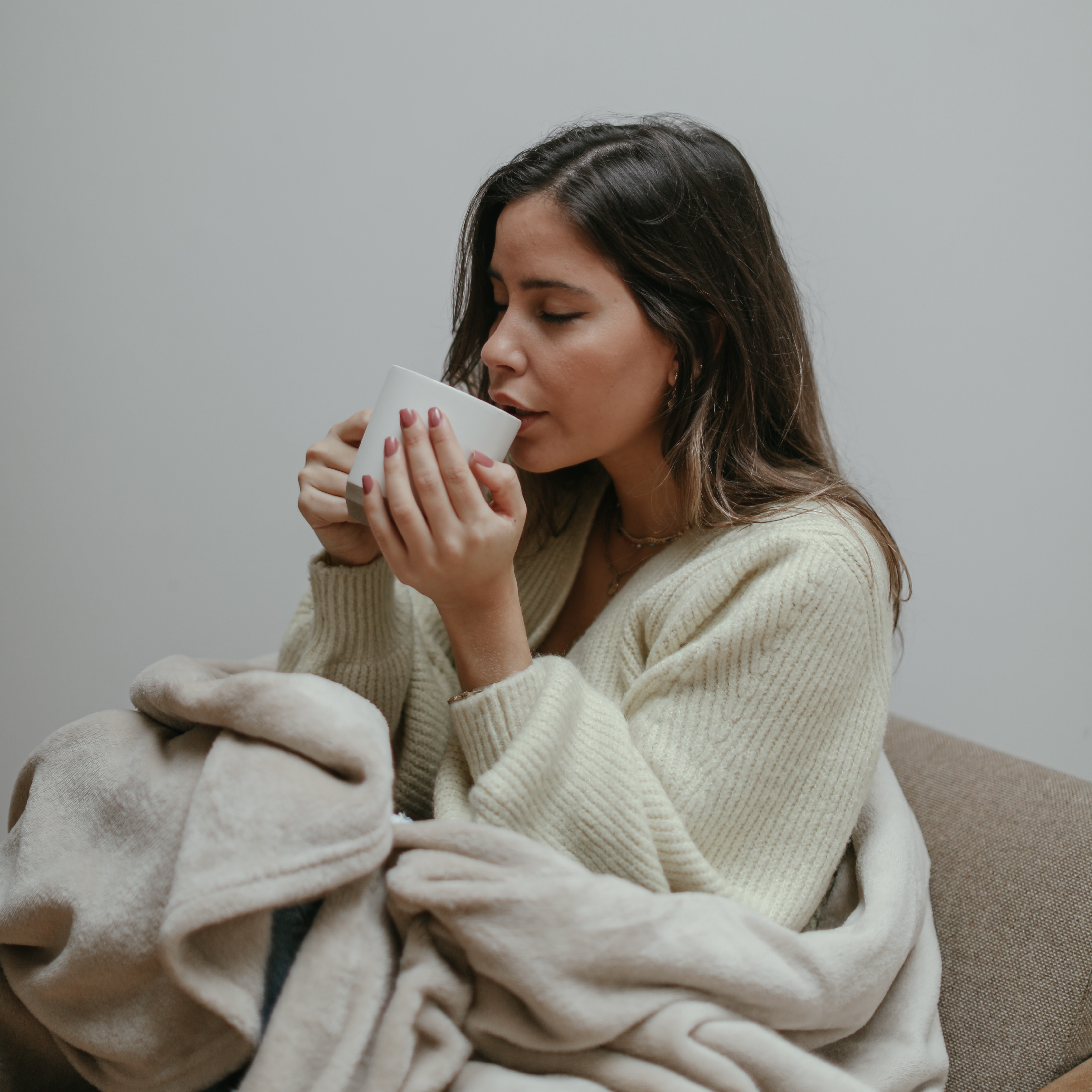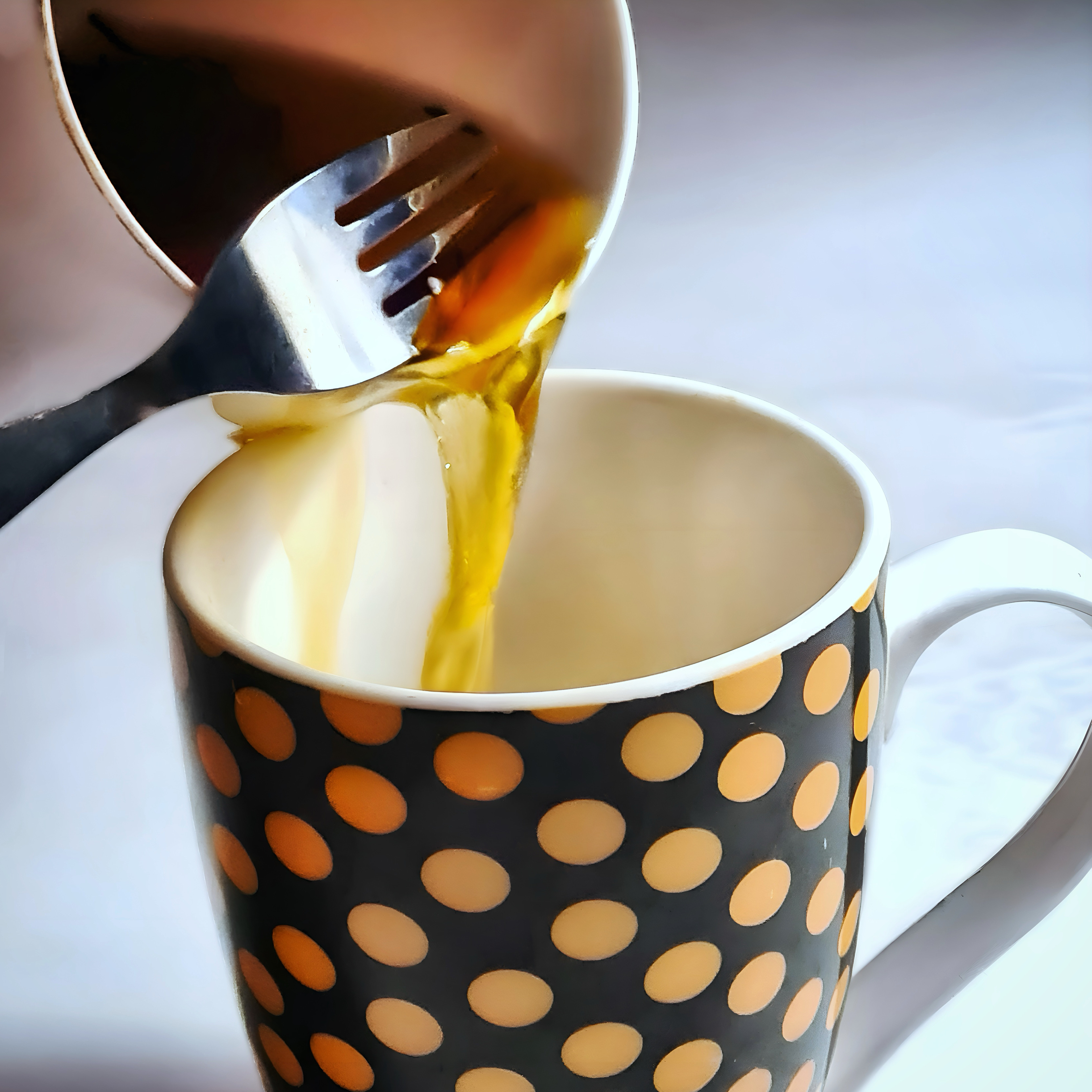If you love tea, but want to avoid or reduce caffeine, you might be wondering about decaf teas. What are they? How are they made? Are they good or bad for you? Which are the best teas to try? In this post, we will try to answer as many of these questions as possible in detail. We will also give you some tips on how to brew and enjoy decaf teas!

What is Decaf Tea?
Decaf teas are teas that have been processed to remove most of the caffeine, but may still contain traces of it. They are not the same as naturally caffeine-free teas, which are usually fruit or herbal infusions. Decaf teas can be made from different types and blends of tea, such as black tea, green tea, oolong tea, or chai. They have virtually zero calories and may have health benefits for digestion and sleep.
For more effective natural sleep remedies, check out this list of the top 11 Bedtime Teas to Help With Sleep.
How is Decaf Tea Made?
There are different methods of decaffeinating tea leaves, each with its own advantages and disadvantages. The most common methods are:
- Carbon dioxide (CO2) method: Firstly, this method uses pressurized liquid CO2 to extract the caffeine from the tea leaves. Considered the most natural and gentle method, as it preserves the flavor and aroma of the tea and does not use any chemicals. However, it is also the most expensive and complex method.
- Ethyl acetate (EA) method: Another method, which uses a solvent called ethyl acetate, which is derived from fruits or vegetables, to dissolve the caffeine from the tea leaves. It is considered a natural method, as ethyl acetate is present in small amounts in tea leaves naturally. However, it may also remove some of the flavor and aroma of the tea and leave a slight chemical residue.
- Methylene chloride (MC) method: This method uses a solvent called methylene chloride, which is a synthetic chemical, to remove the caffeine from the tea leaves. Considered an effective and fast method, as it does not affect the flavor and aroma of the tea much. However, it may also pose some health risks if consumed in large amounts or if not properly removed from the tea leaves.
- Water method: Lastly, this method uses hot water to extract the caffeine from the tea leaves. Considered a simple and safe method, as it does not use any chemicals or solvents. However, it may also reduce the flavor and aroma of the tea significantly.
What is a Naturally Decaffeinated Tea?

Naturally decaffeinated teas are teas that do not contain any caffeine naturally. For example, processed or treated with any chemicals or solvents. They are usually fruit or herbal infusions that do not come from the Camellia sinensis plant. Some examples of naturally decaffeinated teas are:
- Rooibos tea: This is a red herbal tea that comes from a plant native to South Africa. It has a sweet and nutty flavor and is rich in antioxidants and minerals. Check out this list of The Best Rooibos Tea’s to Try.
- Chamomile tea: This is a yellow herbal tea that comes from a flower related to daisies. You’ll notice a floral and soothing flavor, and it is known for its calming and anti-inflammatory properties. Try our Lavender Chamomile Tea Recipe for the perfect relaxation drink.
- Peppermint tea: This is a herbal tea that comes from a mint plant. It has a refreshing and cooling flavor and is good for digestion and headaches. Learn How to Make Cucumber Mint Tea (ICED): A Zesty Summer Drink.
- Lemon balm tea: This is a yellow herbal tea that comes from a lemon-scented herb. It has a citrusy and relaxing flavor and is good for stress and insomnia.
- Ginger tea: This is a brown herbal tea that comes from a spicy root. It has a warming and invigorating flavor and is good for nausea and colds. Try our Korean Honey Ginger Tea Recipe: How to Make ‘Saenggang Cha’.
What are the Benefits of Drinking Decaffeinated Tea?
As i’m sure you are aware, drinking tea has many benefits for you and your health. So, you’ll be glad to hear that this applies to decaf tea too! In fact, the lack of caffeine even brings additional benefits. Here’s some of the benefits you can get from drink decaf:
- You can enjoy tea anytime:
- By drinking decaf teas, you can enjoy your favorite tea anytime of the day or night, without worrying about caffeine affecting your sleep quality or causing jitters or anxiety.
- You can also drink more tea without exceeding the recommended daily limit of caffeine intake, which is about 400 mg for adults.
- You can enjoy the flavor and aroma of tea:
- By drinking decaf teas that use natural and gentle methods of decaffeination, such as CO2 or EA, you can still enjoy the flavor and aroma of your favorite tea types, such as black, green, oolong, or chai.
- You can also experiment with different blends and flavors of decaf teas to suit your mood and taste.
- You can enjoy the health benefits of tea:
- By drinking decaf teas, you can still enjoy the health benefits of tea, such as antioxidants, polyphenols, catechins, and flavonoids. These compounds may help prevent or reduce the risk of various diseases and conditions, such as cancer, diabetes, heart disease, inflammation, and obesity .
- You can also enjoy the health benefits of naturally decaffeinated teas, such as rooibos, chamomile, peppermint, lemon balm, and ginger, which may have additional benefits for digestion, sleep, stress, immunity, and more.
What are the Best Decaf Teas to Try?
You’ll find many decaf teas available in the market today, but not all of them are created equal. Some may use harsh chemicals or solvents to decaffeinate the tea leaves, which may affect the flavor and aroma of the tea and leave some residues. Some may also use low-quality tea leaves or artificial flavors or additives to mask the loss of flavor and aroma. To help you choose the best decaf teas to try, here are some factors to consider:
- The type and quality of tea leaves:
- Firstly, look for decaf teas that use high-quality tea leaves from reputable sources and regions.
- Avoid decaf teas that use fannings or dusts, which are the lowest grades of tea leaves.
- Also look for decaf teas that use organic or fair-trade tea leaves whenever possible.
- The method of decaffeination:
- Look for decaf teas that use natural and gentle methods of decaffeination, such as CO2 or EA.
- Avoid decaf teas that use MC or water methods, which may affect the flavor and aroma of the tea and pose some health risks.
- Also look for decaf teas that clearly state the method of decaffeination on their labels or websites.
- The flavor and aroma of the tea:
- Firstly, look for decaf teas that have a rich and satisfying flavor and aroma that match your preferences and expectations.
- Avoid decaf teas that have a bland or bitter taste or a weak or unpleasant smell.
- Also avoid decaf teas that have artificial flavors or additives that may compromise the quality and authenticity of the tea.

Decaf Tea Recommendations:
To help you further narrow down your choices, here are some examples of some of the best decaf teas to try in 2023:
- Harney & Sons Decaffeinated Earl Grey Tea: A classic black tea with a citrusy bergamot flavor that is decaffeinated using the CO2 method. It comes in loose leaf or teabag form and is organic and kosher-certified.
- English Tea Store Decaffeinated Sencha Green Tea: This is a light and refreshing green tea that is decaffeinated using the CO2 method. It comes in loose leaf form and is organic and fair-trade certified.
- Fortnum & Mason Decaffeinated Darjeeling Tea: This is a floral and fruity black tea that is decaffeinated using the CO2 method. It comes in loose leaf form and is sourced from Darjeeling region in India.
- Davidson’s Tea Decaffeinated Mango Black Tea: This is a tropical and sweet black tea with natural mango flavor that is decaffeinated using the CO2 method. It comes in loose leaf form and is organic and fair-trade certified.
- The Republic of Tea Decaffeinated Ginger Peach Black Tea: This is a spicy and juicy black tea with natural ginger and peach flavor that is decaffeinated using the CO2 method. It comes in teabag form and is gluten-free and kosher-certified.
- Tea Forte Decaffeinated Breakfast Black Tea: This is a robust and full-bodied black tea that is decaffeinated using the CO2 method. It comes in loose leaf or pyramid infuser form and is organic and kosher-certified.

Herbal Teas:
- Rooibos Tea: This is a naturally caffeine-free red herbal tea that comes from a plant native to South Africa. It has a sweet and nutty flavor and is rich in antioxidants and minerals. It comes in various flavors and blends, such as vanilla, caramel, chai, or berry.
- Chamomile Tea: This is a naturally caffeine-free yellow herbal tea that comes from a flower related to daisies. It has a floral and soothing flavor and is known for its calming and anti-inflammatory properties. It comes in various flavors and blends, such as lavender, honey, lemon, or mint.
- Peppermint Tea: This is a naturally caffeine-free green herbal tea that comes from a mint plant. It has a refreshing and cooling flavor and is good for digestion and headaches. It comes in various flavors and blends, such as spearmint, chocolate, orange, or ginger.
- Lemon Balm Tea: This is a naturally caffeine-free yellow herbal tea that comes from a lemon-scented herb. It has a citrusy and relaxing flavor and is good for stress and insomnia. It comes in various flavors and blends, such as lemon verbena, lemon grass, lemon ginger, or lemon rose.
- Ginger Tea: This is a naturally caffeine-free brown herbal tea that comes from a spicy root. It has a warming and invigorating flavor and is good for nausea and colds. It comes in various flavors and blends, such as turmeric, honey, lemon, or apple.
How to Brew and Enjoy Decaf Tea?

Brewing and enjoying decaf teas is similar to brewing and enjoying regular teas. However, there are some tips and tricks that can help you make the most of your decaf tea experience. Below are some of things to consider. Additionally, you can check out our guide on Loose Leaf Tea: How to Improve The Quality And Flavour in 4 Steps.
1. Use fresh and filtered water:
The quality of water can affect the flavor and aroma of your decaf tea. Use fresh and filtered water that is free of chlorine, fluoride, or other impurities. Avoid using distilled or mineral water, as they may alter the taste of your decaf tea.
2. Use the right water temperature:
The temperature of water can affect the extraction of flavor and aroma from your decaf tea leaves. Use the right water temperature for your type of decaf tea. Generally, black, oolong, and herbal decaf teas are brewed with boiling water (212°F), while green and white decaf teas are brewed with slightly cooler water (170°F to 185°F).
3. Use the right amount of tea leaves:
The amount of tea leaves can affect the strength and intensity of your decaf tea. Use the right amount of tea leaves for your type of decaf tea and your personal preference. Generally, you can use about one teaspoon of loose leaf decaf tea or one teabag per 8 oz cup of water.
4. Use the right steeping time:
The steeping time can affect the flavor and aroma of your decaf tea. Use the right steeping time for your type of decaf tea and your personal preference. Generally, you can steep black, oolong, and herbal decaf teas for 3 to 5 minutes, while green and white decaf teas for 2 to 3 minutes. Avoid oversteeping your decaf tea, as it may result in a bitter or astringent taste.
Do you use loose leaf? Discover The Art of Re-Steeping: How to Enjoy Multiple Cups of Flavour.
5. Use a good teapot or infuser:
The type of teapot or infuser you use can affect the quality and convenience of your decaf tea. Use a good teapot or infuser that is clean, durable, and easy to use. Avoid using metal teapots or infusers, as they may react with the tea and alter its flavor. Choose ceramic, glass, or stainless steel teapots or infusers instead.
Don’t have a teapot or infuser? Learn How To Strain Tea Without a Strainer: 7 Easy Methods.
6. Add some extras if you like:
You can enhance the flavour and aroma of your decaf tea by adding some extras if you like:
- Adding some sweeteners, such as honey, sugar, or stevia, can balance out the bitterness or acidity of your decaf tea. Learn The Best Sweeteners for Tea: How to Find Your Sweet Spot.
- You can also add some milk, cream, or non-dairy alternatives, such as almond, soy, or oat milk, to add some richness and creaminess to your decaf tea. Find out The Best Non Dairy Milk to Compliment Your Tea.
- Adding some spices, such as cinnamon, cardamom, or cloves, can add some warmth and complexity to your decaf tea. Experiment with different combinations and find your favorite ones. You try out our guide on How to Make Your Own Chai Tea Blends (just use decaf tea instead of caffeinated).
Conclusion:
Decaf teas are a great option for tea lovers who want to avoid or reduce caffeine. They’re made from different types of tea leaves that have been processed to remove most of the caffeine. They have virtually zero calories and may have health benefits for digestion and sleep.
Decaf teas come in various flavors and blends that can suit your mood and taste. Whether you prefer black, green, oolong, chai, or herbal decaf teas, there is a perfect decaf tea for you. So grab your teapot and your cup and start your decaf tea adventure today!
Discover More Tea-Related Articles:
- Milk Tea and Crackers: The Unusual Mix of Sweet and Savoury
- How to Make Oregano and Ginger Tea: Mediterranean Inspired
- The Creamy Coconut Chamomile Tea: A Simple & Exotic Recipe
- How to Pair Food with Tea: A Flavourful and Fun Guide
- Green Tea Pre Workout: The Best Naturally Powerful Boost





Leave a Comment